Art for Radical Ecologies Manifesto
Art for Radical Ecologies Manifesto was initiated by Institute of Radical Imagination (IRI), current member of L’Internationale. The manifesto was developed during three public assemblies at the Venice Climate Camps (2022 and 2023) and the World Congress for Climate Justice of Milan (2023) where fellow artists, cultural workers, activists and researchers joined the Art for Radical Ecologies platform. As IRI writes in a foreword to the program, the manifesto makes the compelling case for ‘aesthetic-political concatenations that interpret creativity as a radical character of the social and not as a commodity.’ It is based on ‘the conviction that the fight for climate justice is, necessarily, a fight against and beyond extractive capitalism, even in its green version, that is actually an attempt to turn the crisis into new accumulation.’ L’Internationale Online and IRI will be publishing further texts that expand on the positions of the manifesto.
1/ Art is part of the world. Art for Radical Ecologies is part of the struggles to change it.
2/ Art is a promise of other worlds, but it is in the actual world that promises must be kept participating in the struggles for its transformation.
3/ New materialism and historical materialism together act against exploitation and domination. Speculation opens up to potential becoming counter-hegemonic social practice, otherwise it is neutralization and capture.
4/ In our current environmental breakdown, the necessary condition for autonomy of art is its autonomy from the neoliberal-extractivist apparatus. Art workers and art institutions must reflect about their positionality and act accordingly.
5/ Art for Radical Ecologies is abolitionist, against police repression, fascism, racism, colonialism and genocide. It is grounded in the voices of the oppressed and is our breath of liberation.
6/ The revolutionary subject is not only human. Transversal and interspecies alliances can powerfully act against ventriloquisms, dualisms, and othering hierarchies.
7/ Art for Radical Ecologies makes visible the human and other-than-human vulnerabilities and precariuosness and takes care of them.
8/ Dismantling the foundations of colonial privilege in this era of environmental and democratic collapse is paramount. Art for Radical Ecologies opens up space against the contention and detention of migrating humans and other-than-humans.
9/ Struggles are interconnected, because so are oppressions. Ideological and material extractivism abusing lives as resources, means or products must end now. In shared life, liberation is total.
10/ End Fossil is the priority. Any complicity with biocapitalism, extractive industry and financial greenwashing in and outside art institutions must end.
11/ Art for Radical Ecologies is either anti-capitalist or it is not. Capitalism is the driver of environmental breakdown. There is no such thing as sustainable capitalism. Techno solutionism and transition reformism are bullshit.
12/ Art for Radical Ecologies stands with technologies that free human and other-than human life and do not perpetuate the exploitation of productive and reproductive labor.
13/ Art for Radical Ecologies is generative yet anti-productivist. It embraces degrowth and multiplies questions, terminologies, connections and scenarios.
14/ Art institutions funded by toxic philanthropy must be abolished. Anti-museums and alter-institutions are the forms that we adopt for common instituent imagination.
15/ As art workers we inhabit spaces of race, class, gender privilege as well as subordination. We stand with those whose freedoms are menaced. We reclaim freedom of speech and stand against censorship.
16/ Dystopia is privilege. Enough with the apocalyptic talk, it’s not the end of the world, but of global capitalism and its toxic imaginaries. Art repairs temporalities and liberates futurity, opening horizons beyond capitalist realism and catastrophism.
First published on November 3rd, 2023, by Institute of Radical Imagination
Sign the manifesto on instituteofradicalimagination.org
The views and opinions published here mirror the principles of academic freedom and do not necessarily reflect the views or positions of the L'Internationale confederation and its members.
Related activities
Climate Forum
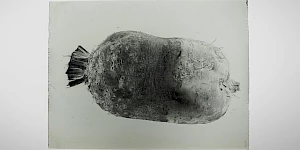
The Climate Forum is a space of dialogue with respect to the concrete eco-political operational practices implemented within the art field.
The Climate Forum is a space of dialogue and exchange with respect to the concrete operational practices being implemented within the art field in response to climate change and ecological degradation. This is the first in a series of meetings hosted by HDK-Valand within L'Internationale's Museum of the Commons programme.
The series builds upon earlier research resulting in the (2022) book Climate: Our Right to Breathe and reaches toward emerging change practices. It asks: How might the speculative and critical insights framed within the registers of the discursive, the affective, and the symbolic be operationalised within everyday working? While the wider agenda of the series is to consider institutional practices, the first session maps some of the ways ecopolitics are formulated by artist and activist iniatives.
Register here.
The Soils Project
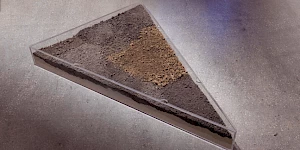
The Soils Project, is part of the eponymous, long term research initiative involving Tarrawara Museum of Art, Wurundjeri Country, Australia, the Van Abbemuseum in Eindhoven, Netherlands and Struggles for Sovereignty, a collective based in Yogyakarta, Indonesia. It works through specific and situated practices that consider soil, as both metaphor and matter. A further iteration of the project will open at the Van Abbemuseum in May - September 2024 as part of Museum of the Commons.
The Soils Project has been in development since 2018. An international collaboration between three organisations, and several artists, curators, writers and activists, the project has manifested in various iterations over several years including a three-part public webinar series titled The Soils Project: groundwork, and a two-week workshop, titled The Soils Project: On Country, for participating curators and artists. With a curatorium comprising arts workers from TarraWarra Museum of Art, the Van Abbemuseum, and Struggles for Sovereignty, the project’s approach seeks and facilitates opportunities to listen to diverse voices and perspectives around notions of caring for land, soil and sovereign territories.
Developed from this journey, The Soils Project’s forthcoming exhibition will embrace the deep histories of each participant’s location, examining the multiplicity of landscapes and environments, and the impact of colonisations and global industries on cultural heritage, land management and traditional knowledges.
Non-Western Technologies for the Good Life
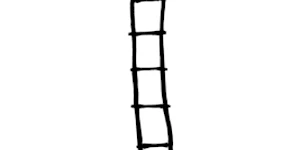
The experimental course 'Non-Western Technologies for the Good Life' (November 2023 – May 2024) celebrates as its starting point the anniversary of 50 years since the publication of Tools for Conviviality, considering that Ivan Illich’s call is as relevant as ever.
Summer School: Our Many Easts
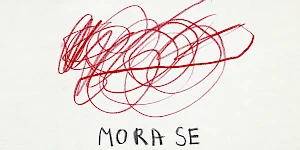
Our Many Easts summer school is organised by Moderna galerija in Ljubljana in partnership with ZRC SAZU (the Research Centre of the Slovenian Academy of Sciences and Arts) as part of the L’Internationale project Museum of the Commons.
Open Call – Summer School: Our Many Easts

Our Many Easts summer school takes place in Ljubljana 24–30 August and the application deadline is 15 March. Courses will be held in English and cover topics such as the legacy of the Eastern European avant-gardes, archives as tools of emancipation, the new “non-aligned” networks, art in times of conflict and war, ecology and the environment.
Gathering into the Maelstrom
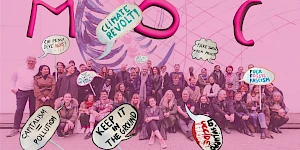
Gathering into the Maelstrom in Venice at Sale Docks is a four-day programme curated by Institute of Radical Imagination (IRI) and Sale Docks.
Related contributions
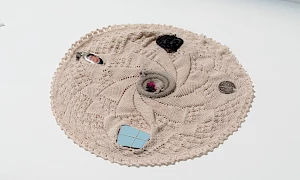
Decolonial aesthesis: weaving each other
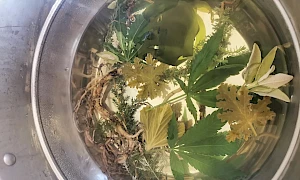
Climate Forum Readings
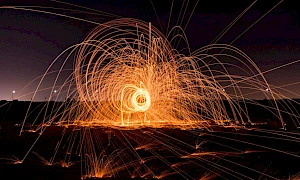
…and the Earth along. Tales about the making, remaking and unmaking of the world.
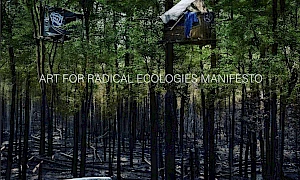
Art for Radical Ecologies Manifesto
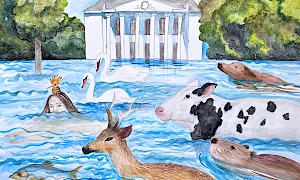
Pollution as a Weapon of War
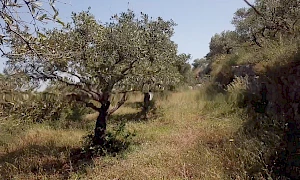
A Letter Inside a Letter: How Labor Appears and Disappears
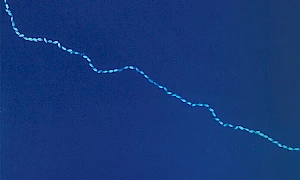
Seeds Shall Set Us Free II
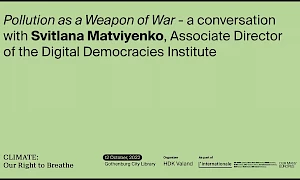
Pollution as a Weapon of War – a conversation with Svitlana Matviyenko
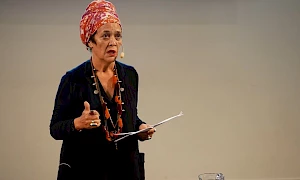
Françoise Vergès – Breathing: A Revolutionary Act
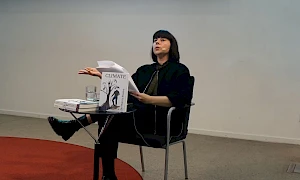
Ana Teixeira Pinto – Fire and Fuel: Energy and Chronopolitical Allegory
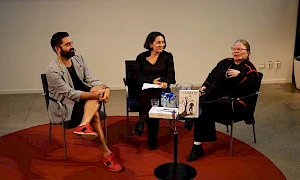
Watery Histories – a conversation between artists Katarina Pirak Sikku and Léuli Eshrāghi
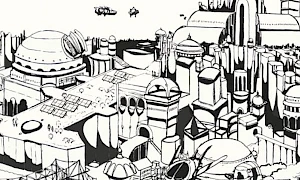
Indra's Web
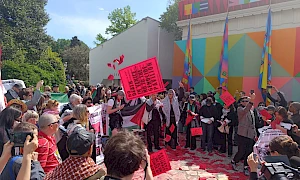
One Day, Freedom Will Be
